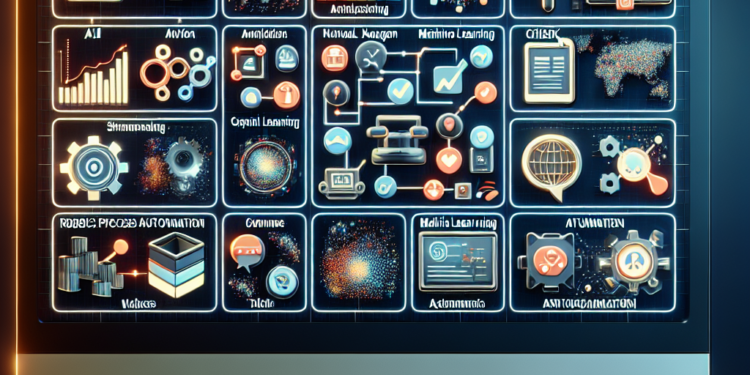Artificial Intelligence (AI) has become an integral part of our daily lives, from virtual assistants like Siri and Alexa to smart home devices and self-driving cars. In recent years, AI tools have also been increasingly used in streamlining tasks in various industries. These tools are designed to automate processes, improve efficiency, and free up human resources for more strategic and creative work.
One of the key benefits of using AI tools for streamlining tasks is the ability to handle large amounts of data quickly and accurately. AI algorithms are able to process and analyze data at a speed that is far beyond human capability, making it possible to identify patterns, trends, and insights that would be impossible to uncover manually. This can be particularly useful in industries such as finance, marketing, and healthcare, where the volume of data being generated is constantly increasing.
AI tools can also help streamline tasks by automating repetitive and time-consuming processes. For example, in the field of customer service, AI-powered chatbots can handle basic customer inquiries and support requests, freeing up human agents to focus on more complex and high-value interactions. In e-commerce, AI tools can automate tasks such as inventory management, order processing, and customer segmentation, allowing businesses to operate more efficiently and scale their operations more effectively.
In addition to automating processes, AI tools can also help streamline tasks by providing actionable insights and recommendations. For example, in marketing, AI algorithms can analyze customer data to identify key demographic segments, predict customer behavior, and personalize marketing campaigns. In healthcare, AI tools can analyze medical images and patient data to help diagnose diseases, recommend treatment options, and improve patient outcomes.
There are a wide range of AI tools available for streamlining tasks in different industries and applications. Some of the most common types of AI tools include:
1. Robotic Process Automation (RPA): RPA tools are designed to automate repetitive tasks such as data entry, document processing, and customer service. These tools can be programmed to follow predefined rules and workflows, allowing them to perform tasks with a high degree of accuracy and efficiency.
2. Natural Language Processing (NLP): NLP tools are designed to understand and analyze human language, allowing them to process textual data, extract insights, and generate natural language responses. These tools are commonly used in applications such as chatbots, sentiment analysis, and language translation.
3. Machine Learning: Machine learning tools are designed to learn from data and make predictions or decisions based on patterns and trends. These tools can be used in a wide range of applications, such as predictive maintenance, fraud detection, and personalization.
4. Computer Vision: Computer vision tools are designed to analyze and interpret visual data, such as images and videos. These tools can be used in applications such as object recognition, facial recognition, and autonomous vehicles.
5. AI-powered Analytics: AI-powered analytics tools are designed to analyze large volumes of data and generate actionable insights. These tools can be used to identify trends, anomalies, and correlations in data, helping businesses make more informed decisions.
In conclusion, AI tools have the potential to revolutionize the way we work by streamlining tasks, automating processes, and providing actionable insights. By leveraging the power of AI, businesses can improve efficiency, reduce costs, and unlock new opportunities for innovation and growth. As AI technology continues to evolve and mature, we can expect to see even more advanced tools and applications that will further transform the way we work and live.













